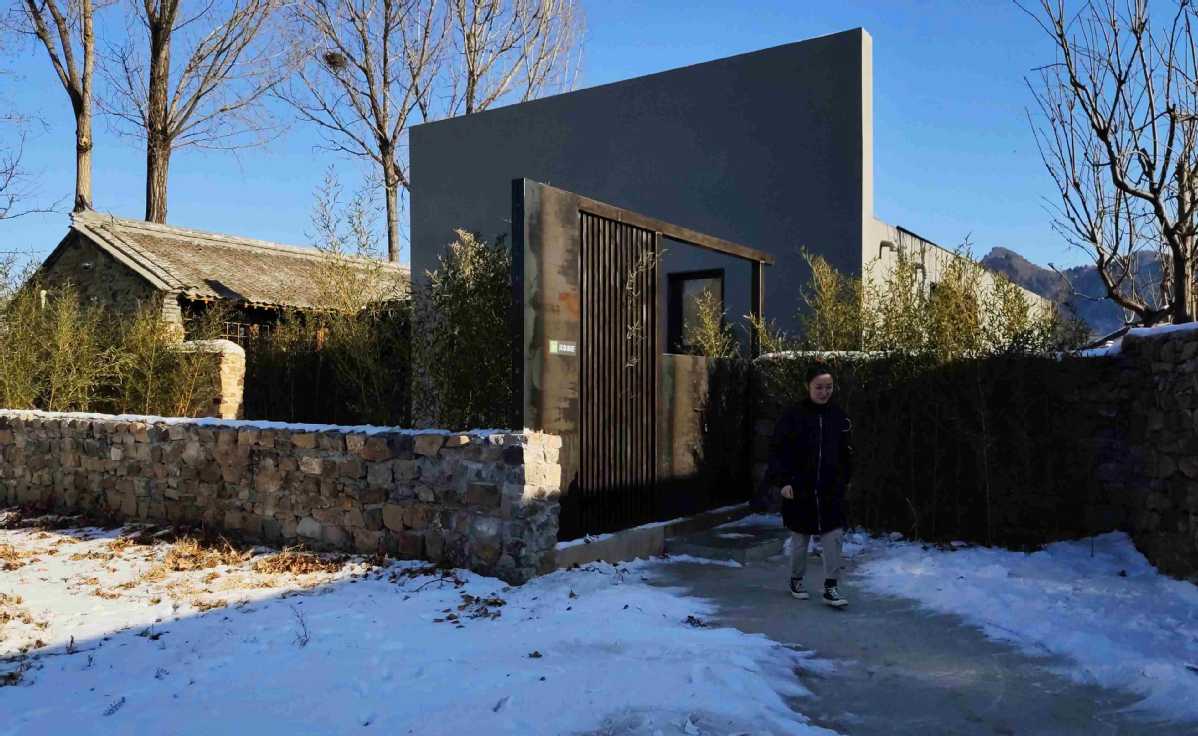Rental business revitalizes village life


Land reform innovation
Zhangjiazhuang village is almost a two-hour drive from the northern part of Beijing's Third Ring Road, and it is hard to believe that Scandinavian-style modern homes can exist in the middle of a farming village.
The concept is the brainchild of Zhuang Homes' founder and CEO Zhong Quefei, who studied and worked in agricultural land management for several years. Her knowledge and experience helped her come up with the novel idea of transforming village homes and renting them to city dwellers looking for quiet hideaways.
It not only allows farmers to earn extra income from rentals, but the renters are also then free to use the property as they wish, including for commercial purposes. The rented homes can be used for elderly care, homestays, artist's spaces or even subleased out.
The idea gained impetus when Zhong was doing her master's in land management at Renmin University of China in Beijing and after China introduced land reform measures.
Under the household contract responsibility system adopted in the early 1980s, the property rights of rural farmland are divided into two layers: the ownership right that is collectively owned by a rural community, normally a village; and the usage right, which is held by an individual household that contracts a piece of farmland from the village.
In 2014, the government began reexamining land-use policies and launched a pilot program to explore ways to let farmers transfer land-use rights in exchange for income.
This resulted in farmland being put on the market for rent by the end of 2016. Zhong estimated that idle farmland in China amounts to 8.67 million hectares, the equivalent of 300 million farmers not using their land.
"Where did they go?" said Zhong, referring to the farmers. "They've gone to the cities, they are living in the cities."
"However, there are also people who have lived all of their lives in the city and want to go to the suburbs to explore new spaces."
Zhong said those looking at land reform needed to explore what advances can be made for villagers to increase their incomes. With the opening of land usage rights, Zhong visited villages to explore what type of projects would meet the requirements.
As the farmers' land cannot be sold, Zhuang Homes helps the farmers rent the dwellings for a "middle man's" fee. Zhuang Homes helps remodel some of the farmers' houses, but other renters prefer to do their own renovations.
Zhong calls the practice gongxiang nongzhuang (sharing village homes with city people).
She also has personal reasons for developing the business model. When she was young, Zhong lived with her grandmother in a village and has since witnessed development in rural places lag behind cities. Zhong has bettered herself living and working in the city and feels an obligation to promote advancement in the villages.
In 2016, her company developed an app so farmers can easily participate in the renting process. Potential customers log on to the Zhuang Homes app to find a place they are interested in renting. Once customers have selected one, the company helps arrange a rental agreement between the customer and the farmer. The customer can then move into the rented home after a waiting period of three to six months.























